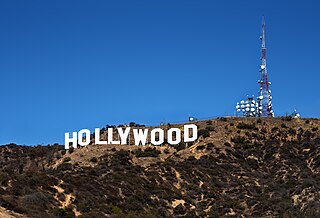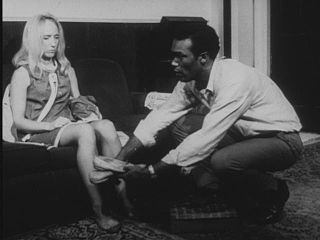History
Early cinema
In the early days of cinema, African-American roles were scarce and often filled with stereotypes. Pioneers like Oscar Micheaux, one of the first significant African-American filmmakers, countered these narratives with films like The Homesteader (1919) and Body and Soul (1925), which were part of the "race film" genre and tackled issues such as racial violence, economic oppression, and discrimination [1] Other pioneers included Maria P. Williams, the first black female film producer, known for her 1923 film Flames of Wrath, [2] and Noble Johnson, who founded the Lincoln Motion Picture Company in 1916 to produce positive films starring black actors. [3] Spencer Williams, another prolific filmmaker, directed films like The Blood of Jesus (1941), which portrayed Southern Baptist religion through a black lens. [4] These filmmakers' contributions were pivotal in challenging and changing the stereotypical and discriminatory portrayal of African-Americans in early cinema. [5]
African Americans characters were often portrayed as incompetent, child-like, hypersexual, and criminal. [6]
The Civil Rights Era
The Civil Rights Movement profoundly impacted African-American representation in film, marking a shift from stereotypes to more varied and complex characters. During this era, "race films" began to combat the negative racist stereotypes prevalent since the early 1900s. A significant breakthrough came with Nothing But a Man (1963), a drama featuring an all-Black cast aimed at a mixed audience, released as the Civil Rights Movement was gaining momentum. [7]

Sidney Poitier, a prominent figure of this era, broke barriers with his Oscar-winning performance in Lilies of the Field (1963), becoming the first Black man to win an Oscar. [7] He also starred in Guess Who's Coming to Dinner (1967), which featured the first interracial kiss in an American film, a significant moment reflecting the changing social norms following the Civil Rights Movement. [7]
Another milestone was The Learning Tree (1969), directed by Gordon Parks, which marked the first Hollywood studio film directed by an African-American. Adapted from Parks' semi-autobiographical novel, the film depicted a Black teenager's coming-of-age in Kansas during the 1920s. The Learning Tree addressed racial and societal challenges with an authenticity rarely seen in mainstream cinema at the time, paving the way for African-American directors to take on leadership roles in Hollywood. [8]
In 1971, Sweet Sweetback's Baadasssss Song , written, directed, and produced by Melvin Van Peebles, further revolutionized African-American cinema. The film was a defining moment for the blaxploitation genre, featuring a defiant narrative centered on a Black protagonist resisting systemic oppression. Funded independently and supported by the Black Panther Party, the film's success demonstrated the potential for Black filmmakers to achieve commercial and critical acclaim outside the Hollywood system. Its cultural impact extended beyond its storyline, inspiring a new generation of African-American filmmakers to explore bold and unapologetic themes. [9]
This era marked the beginning of a transformative period in Hollywood, with Black creatives working tirelessly to combat harmful stereotypes and create a more inclusive and varied representation of the Black experience in film. [7] Together, these films symbolized the growing empowerment of African-American filmmakers and audiences during a time of social upheaval, showcasing authentic narratives that challenged the status quo and demanded change in Hollywood's treatment of race. [10]
Contemporary era
Significant achievements and diverse storytelling have marked the contemporary era in African-American cinema. Notably, films like Moonlight (2016) and Black Panther (2018). [7] have gained critical acclaim and commercial success. Moonlight, an exploration of a young African-American man's journey, was the first LGBTQ+ film with an all-Black cast to win the Academy Award for Best Picture. This landmark victory highlighted the evolving recognition of diverse narratives within the African-American community.

Black Panther, the first Black Marvel superhero film, achieved box office success and significantly impacted cultural representation. The film's portrayal of African heritage and its strong, nuanced characters marked a departure from stereotypical roles and opened new avenues for representation in mainstream media. These films, along with other notable works in this era, have challenged traditional norms, paving the way for a more inclusive and representative cinematic landscape. [7]




















